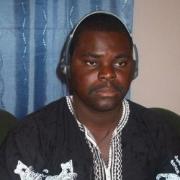
In November 2012, the South African public sphere was awash with tales of the upgrade to President Jacob Zuma’s Nkandla residence.
On a sunny afternoon in November, my colleagues at the School of Journalism and Media Studies at Rhodes University in Grahamstown and I met to discuss political developments in Africa.
As a Nigerian, I had told my South African colleagues that R248 million was a paltry sum for upgrades to the house of a president – particularly the president of the biggest economy in Africa. I told them about Nigeria, where R248 million would not amount to what state governors steal to satiate their appetites for the good things in life. I told them most state governors in my country are proud owners of private jets.
I told them they lived in a sane society, where an Auditor-General had the temerity to probe the upgrade to a president’s residence – in my country, the Auditor-General would have considered his job gone.
I told them the story of former minister for power and energy, Professor Barth Nnaji, who was sacked for telling the truth. I told them about Justice Ayo Salami, the former head of Nigeria’s Appeal Court, who was suspended for giving judgments in favour of the country’s leading opposition party in the southwest. And I told them about Aruma Oteh, the Securities and Exchange Commission boss, whose job is on the line for confronting the country’s dishonourable members.
I asked if they had heard about, among others, the mansion in Minna, Niger State, belonging to Nigeria’s former military president, Ibrahim Babangida, or former president Olusegun Obasanjo’s mansion in Abeokuta, Ogun State.
They answered to the contrary. I told them they may never understand the absurdity that is Nigeria’s political leadership unless they understand the mentality of the average Nigerian politician. I told them that in Nigeria it is common for a president to build an outlandish residence at the expense of taxpayers. The legendary Nelson Mandela, I’m told, does not live in such affluence.
Two weeks later, I was proved right when it was revealed that the official residence of Nigeria’s Vice-President Namadi Sambo, hitherto valued at 7 billion Nigerian naira (R399 million) in 2009 had been upgraded to 16 billion naira.
The implication is that the upgrade to Sambo’s official residence cost twice as much as the upgrade to the residence of the president of Africa’s largest economy. It also suggests Zuma’s whole Nkandla residence may not be worth more than Sambo’s servants’ quarters.
That is Nigeria, where anything is possible as long as it suits the capriciousness of the ruling elite. Nigeria is an epicentre of absurdities.
Immorality is the language of our politics. It’s called politricks – the more you look, the less you see.
Professor Ehosa Osagie, in his published scholarly article The Limits of Charismatic Authority and Challenges of Leadership in Nigeria, says the “factors that underlie the leadership crisis in Nigeria are to be found in the character of the political elite”.According to Osagie, “the elite developed as a client and dependent class of global capital and have retained this character because of their unwillingness to tamper with the structure of the colonial state inherited at independence”.
The state, Osagie argues, “is oppressive, exclusionary, authoritarian, non-accountable and yet to be meaningfully appropriated of the privileges of its power holders – first the colonisers and later the indigenous political elite”.
This description best captures the disappointment that is Nigeria’s ruling elite. The most comical aspect of Sambo’s exorbitant residence is the fact that it was first awarded in 2009 at a cost of 7 billion naira and by 2012 it had been upgraded to a value of 16 billion naira, more than double its initial cost.
What could justify that?
Adamu Ismail, the executive secretary of the Federal Capital Development Authority, told the Nigerian senate the extra 9 billion was needed for furniture, fencing, two guesthouses, a banquet hall and other security gadgets.
Such an amount could build one primary school in each of the states of the federation. It could upgrade a department of engineering in any Nigerian university to world-class level. It could upgrade police training institutions and our police would be better for it, and it could remove all the almajiri (street children) in Kaduna State (Sambo’s home state) from the streets.
Last I checked, aside from what was said in the senate, no government agency has probed the spending, no professional organisation has adjudicated on it and the government has appeared to accept it. But I know the reason for the silence, as every Nigerian does.
Written by: Emeka Umejei
- Umejei is a postgraduate student at the School of Journalism and Media Studies at Rhodes University. This article was published on City Press online.
